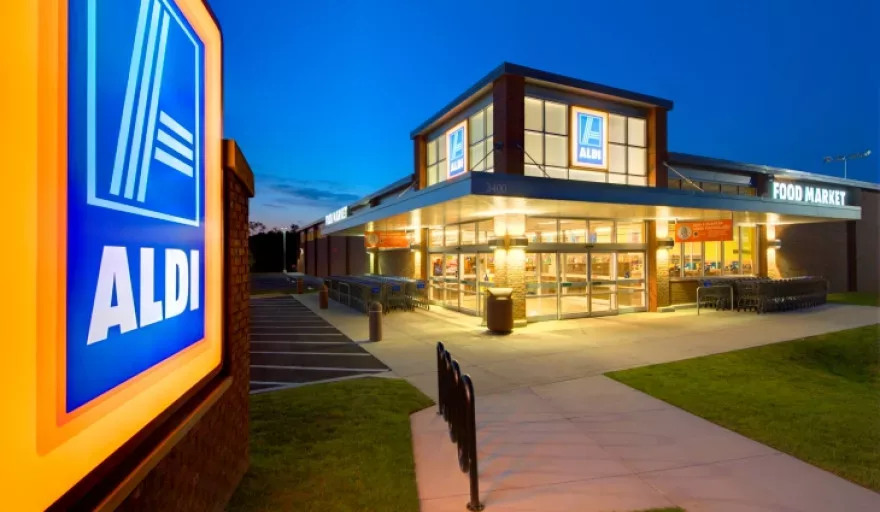Discount supermarket Aldi has had a record year in the U.K. and Ireland, seeing a 65 percent profit jump in the region as the “no frills” retailer makes the most of the “era of value”.
The German headquartered chain said its low prices helped drive the record results, with the grocer seeing pre-tax profit of £260.9 million ($423.3 million) in 2013 in its U.K. and Irish business, up from £157.9 million on the previous year.
“We keep prices constantly low while keeping product quality consistently high, which is exactly what shoppers want. They had become used to thinking you have to pay more for better products. We’ve shown them this doesn’t have to be the case,” group managing director of Aldi UK, Roman Heini said.
Aldi currently holds around 4.8 percent of the U.K. market share according to Kantar World panel, ahead of fellow discount grocers Lidl and Iceland and just shy of luxury supermarket Waitrose’s 4.9 percent.
“It is no great surprise to see that Aldi have posted record profits this year. Their record profits reflect the ongoing drive towards value in retailing. If we look at food retailing in the 1990s and the first part of the 2000s, the focus was on generating customer satisfaction and the ‘big four’ trying to out-compete each other for market share. However, if we can categorize the last six or seven years in retailing as anything, it is the era of value,” said professor of marketing at Warwick Business School, Lloyd Harris.
“While the big four have all too often continued to dismiss the actions of such discounters – frequently using the labels ‘discounters’ or ‘no frill retailers’ as a means of suggesting lower quality – firms such as Aldi and Lidl have slowly and ever so quietly rewritten the rulebook of food retailing competition. Whereas in the past discounters just focused on being the cheapest, these new kids on the block have concentrated on creating value without compromise,” he added.
Last week, U.K. supermarket chain Tesco, which dominates the market with a 28.8 percent share, announced it had overstated its half-year profits by £250 million sending shares to an 11-year low.
SOURCE: http://www.cnbc.com/id/102040753


















